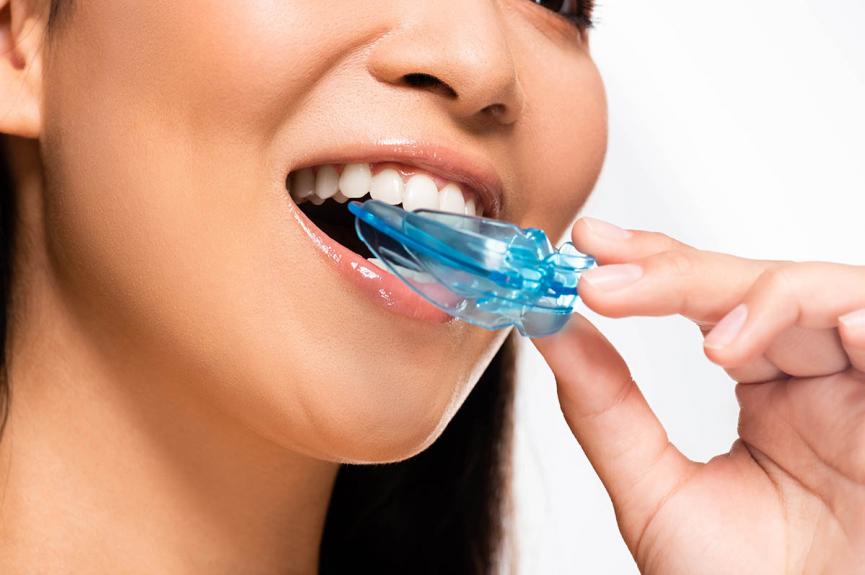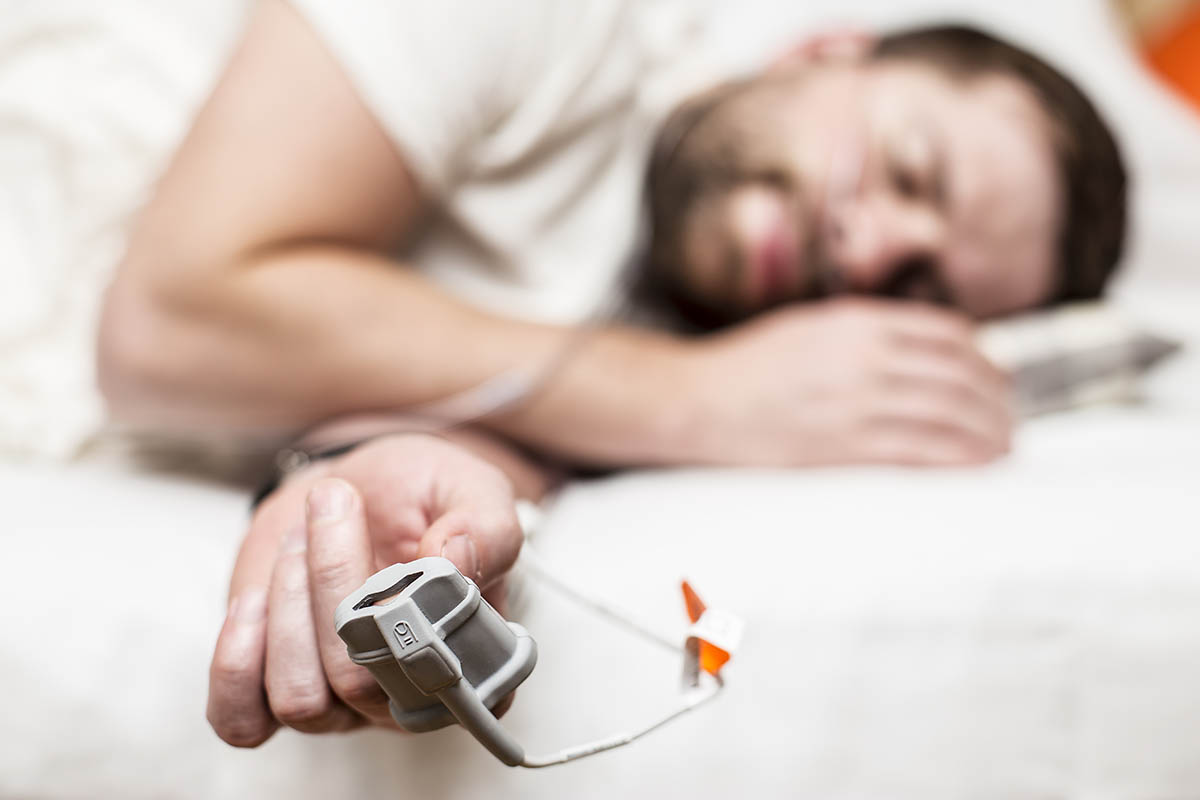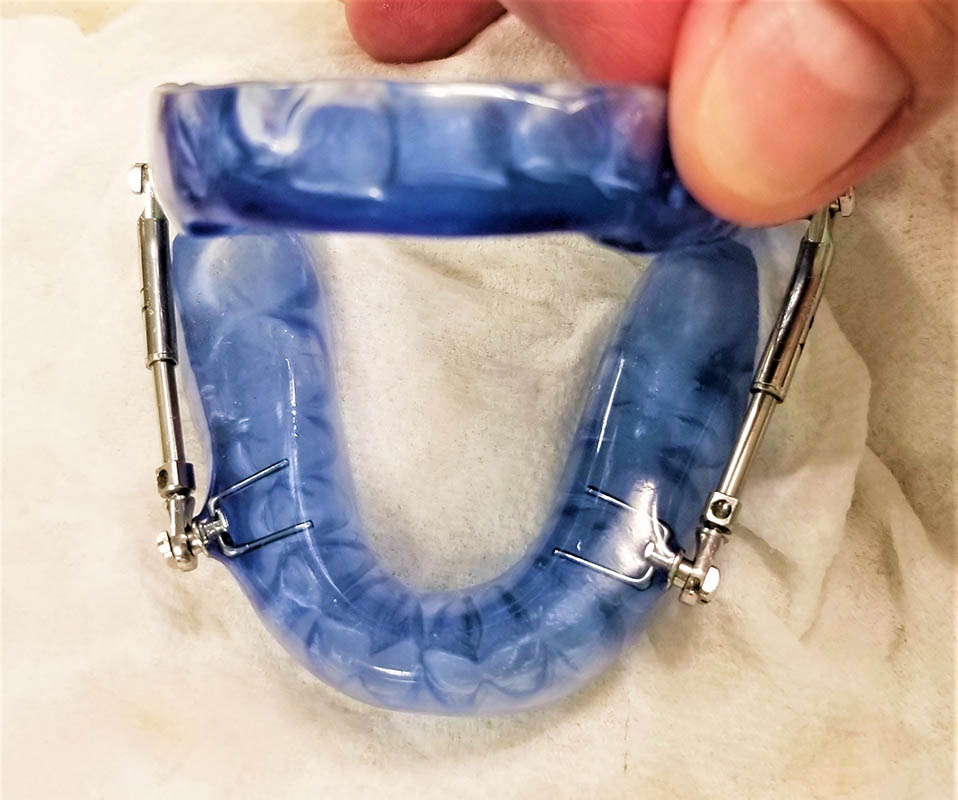
If you wake up feeling tired and fatigued every morning, if your loved one who sleeps next to you tells you are snoring and grinding your teeth during the middle of the night then you may have obstructive sleep apnoea. It is actually a very common condition and a lot of people have this problem without even being aware of that. They are struggling to breathe properly and so they wake up just fatigued and unhappy. The condition can be dangerous as it may lead to many health problems 1.
The good news is that sleep apnea can be successfully treated by a qualified dentist or physician. Now you may be wondering why patients would go to a dentist about their sleep apnea? Well, that’s probably what many people think but actually, they don’t realize how common it is in everyday dental practice.
Why the dentist is the one that can help you with sleep apnea and what is his/her role in treating it? Before answering this question, let us give you some more information about the condition, its causes and symptoms.
What is Obstructive sleep apnea?

Obstructive sleep apnea is a very common sleep disorder that can affect both men and women. The condition normally occurs during sleep due to collapsed muscles in the back of the throat that blocks the airways. It happens only for a short period of time and you won't even remember that the next morning. The brain senses when you are not breathing and that is why if briefly arouses you from your sleep. The problem with sleep apnea is that you never reach deep sleep. So on the next day, you feel tired and restless, you are unable to concentrate at work which makes you more prone to accidents.
Sleep apnea syndrome can be dangerous from a medical viewpoint. Constant lack of sleep can lead to various health problems and diseases including high blood pressure, heart disease, stroke, diabetes, coronary artery diseases and other health issues.
What are the causes of obstructive sleep apnoea?
Some of the most common causes of sleep apnea include:
- obesity or excess weight;
- smoking and use of alcohol;
- Thyroid disease or Polycystic ovary syndrome.
What are the warning signs of dental sleep disorders?
Here are some of the main symptoms of sleep breathing disorders.
- low-quality sleep;
- extreme sleepiness during the day and falling asleep while working or driving;
- struggling to focus and concentrate during the day;
- dry mouth and headaches in the morning;
- depression and low mood.
- teeth grinding during sleep that may lead to periodontal disease or even tooth loss;
- snoring and choking through the night time.
What is the role of dentists in the diagnosis and treatment of sleep apnea?
Obstructive sleep apnea is a medical condition that may have a dental solution. Dentists play a primary role in both the diagnosis of sleep disorders as well as the management of sleep apnea. The dental specialist is able to identify any nasal obstruction or resistance as well as airway size, stability and collapsibility and recommend appropriate treatments.
Dental sleep medicine practice is focused on the use of oral devices that can relieve symptoms in patients with mild to moderate sleep apnea. The role of these devices is to push the lower jaw forward, affect the muscles and relieve symptoms, ensuring restful sleep for the patients. Fatigue, stress, insomnia and most of the sleep apnea symptoms gradually decrease.
Can a dentist prescribe a sleep study test?
Your dentist is well aware of the clinical symptoms and might be the first who diagnosed this condition. However, he/she needs to ensure that you have a sleep examination, sleep study test and diagnosis by a sleep physician.
Sleep study test has a primary role in determining sleep apnea and its degree of severity 2. The test shows your heart rate, oxygen level as well as other markers during your sleep. Thanks to this information your dentist is able to determine the severity of your condition and the next treatment steps.
Treatments for sleep apnea patients
Some of the methods that dentists and physicians use to treat obstructive sleep apnea include CPAP, oral appliances or surgical treatments.
CPAP (Continuous Positive Airway Pressure)
This is a mask that you will need to wear during the night when you sleep. This mask is attached to another device that pumps air into the nose with mild pressure. This airway pressure treatment allows you to breathe easier during sleep as it keeps your throat open 3.
Oral appliance therapy

According to researches, oral appliances are very efficient in treating dental sleep disorders. These are devices that you put in your mouth when you go to sleep. They basically push your jaw forwards which unblock your airways, improve breathing and reduce snoring. Oral appliances are commonly used in dental practice. They are easy to wear and much more comfortable than a CPAP mask and have higher compliance rates than patients who have initial bad experience with CPAP 4.
Invasive treatments
Surgery can be useful in case you have a serious upper airway problem such as enlarged tonsils causing severe sleep apnea and in case other treatments do not work for you. If you don't have severe obstructive sleep apnea nasal surgery might be not very useful. On the other hand, nasal surgery may help you to tolerate CPAP mask better. Whether you need surgical treatment or not depends on what you and your surgeon decide after considering both the advantages and disadvantages.
Which is better CPAP or oral appliance?
CPAP is a very effective treatment method for eliminating sleep apnea in case you can tolerate the mask. Some patients can't sleep with that mask, it bothers them and they often get a dry mouth. It sometimes causes nasal stuffiness but that can be treated with nasal steroid sprays. CPAP treatment is not for everyone but is considered to be one of the most effective treatments for sleep apnea.
Oral appliances are usually better tolerated by patients than a CPAP machine. The devices should be custom made by a dentist or orthodontists. This is a more modern treatment and gives great results in patients with light to moderate obstructive sleep apnea.
What will be the best form of treatment of dental sleep disorders usually depends on some factors such as the severity of the problem, the anatomical features of the patients and so on.
What is the best sleep apnea dental appliance?
Mandibular advancement device (mad) can be a great solution for patients who have mild sleep apnea or loud snoring 5. This device allows your jaw to be pushed forward while you sleep and better breathing room to the back of the throat. It also keeps your tongue from collapsing backwards and making the snoring sound. However, to be effective these devices need to be fitted properly before use. You may find many of them on the internet and they are usually quite inexpensive but actually, they do not work. The problem is that when they are not custom-fitted they just don’t work right and even can be bad for you because they can affect your jaw joint. For positive treatment outcomes, oral appliances must be fitted professionally at the dentist office.
Choose a dental sleep medicine professional
If you think you have a dental sleep disorder or you have already been diagnosed with this condition you need to make sure you find a dentist who specialised in the dental sleep medicine area. He/she is able to determine your problem and provide the most effective treatment for you.







